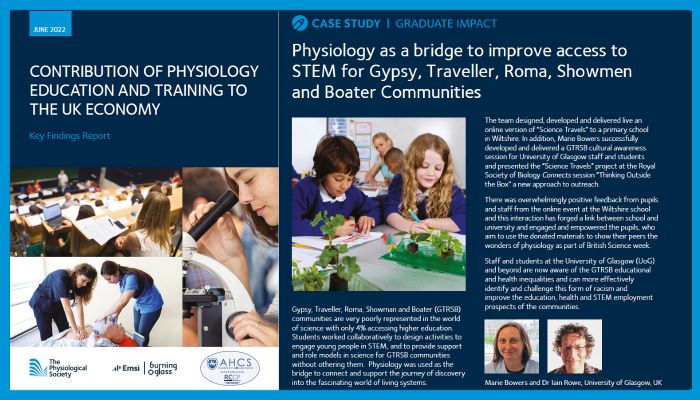"If you’re involved with discussions on equality, diversity and inclusion or decolonising the curriculum, you need 5 more seats at your table..."
Published: 28 April 2022
Guest contributor and MVLS colleague Marie Bowers shares with us with the racism and social inequalities faced by Gypsy, Roma, Traveller, Showman & Boater Communities in relation to higher education (and in the wider community) and explains how a STEM outreach project is working to affect positive change
Guest contributor and MVLS colleague Marie Bowers shares with us with the racism and social inequalities faced by Gypsy, Roma, Traveller, Showman and Boater (GRTSB) communities in relation to higher education (and in the wider community) and explains how a STEM outreach project is working to affect positive change.

Gypsy, Roma and Traveller ethnicities (GRT) are protected under the Equalities Act of 2010, although 66% of respondents to a Traveller Movement/YouGov poll weren’t aware of this.
These distinct groups, which share some commonality of traditionally nomadic cultures, face many forms of racism and social inequality in Britain today.
- We have the worst educational outcomes of any ethnic minority in the UK
- Only 3-4% of us will complete higher education
- We’re underrepresented in the professions
- 4 of 10 respondents to the YouGov poll would be unhappy with a relative having a relationship with a Gypsy or a Traveller
- Gypsy Travellers are more likely to have a long-term health condition than the general population
- Traveller mothers are more likely to suffer miscarriage than other mothers.
I could go on, but it gets a little disheartening...
Showman and Boater communities often face similar issues with access to, and support within, education and healthcare. So, with the aim of challenging preconceptions and to encourage GTRSB communities to see STEM as a safe and creative space, Science Travels was born. We want to educate our staff and students about GTRSB cultures and the daily challenges they face whilst we co-create STEM outreach activities inspired by the theme of the fairground. We are aiming high. We want schools, home educators and community groups to have open access to our activities and to highlight the contributions of GTRSB scientists and healthcare professionals along the way. This part is proving a challenge though. Many GTRSB individuals working in STEM/healthcare don’t identify for fear of prejudice in the workplace. Indeed, I didn’t openly identify as a Romany Gypsy woman at work until I was in my 30s, so I understand it. One academic from a GTRSB background told me that it was already hard enough to get funding, so why would they make it harder for themselves?
But it doesn’t have to be like that. Currently funded by the Physiological Society and the University of Glasgow Chancellor’s Fund, Science Travels has found a supportive and open-minded home. Since June is Gypsy, Roma and Traveller History Month, writing that sentence does give me hope that we can start a positive change in the perception of GTRSB groups and individuals. And, that we can demonstrate our institutions to be welcoming to individuals from all ethnicities.
If you’re involved with discussions on EDI or decolonising the curriculum, you need five more seats at your table; GTRSB are five letters that represent diverse groups that have different lived experiences and a wide range of viewpoints.
If you want to find out more about Science Travels, including our recent trip to the Houses of Parliament, follow @GTRSBinSTEM on Twitter or email us at science-travels@glasgow.ac.uk.
Marie Bowers
Project Lead on Science Travels
Technician in Charge (Physiology), School of Life Sciences
First published: 28 April 2022
<< June 2022



